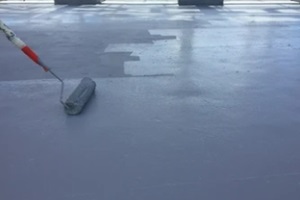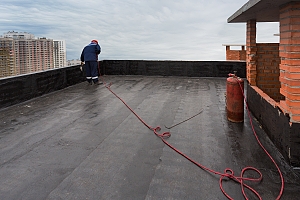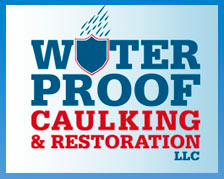 Delaware is home to significant variations in weather patterns. Deep snow may lean against buildings in the winter only to melt when heavy spring rains blanket the region.
Delaware is home to significant variations in weather patterns. Deep snow may lean against buildings in the winter only to melt when heavy spring rains blanket the region.
Because moisture is a regular part of living in this coastal state, commercial building owners should invest in methods of keeping this moisture from harming their structures over time. This is where Delaware commercial waterproofing comes in.
However, once you decide that waterproofing is your goal, you’ll still need to choose between the many varieties available. Remember to work with waterproofing experts because they can evaluate your building’s unique composition, location, and risks to recommend a waterproofing method that offers the most comprehensive protection.
Here is an overview of the many ways to waterproof your commercial building so that you can make an informed decision that is right for your structure’s needs.
What Does Waterproofing Do?
To understand why your building needs waterproofing treatment, you’ll first need to understand what waterproofing achieves. Despite its name, waterproofing does not necessarily keep all water out—which is good.
Some types of waterproofing materials are semi-permeable, which allows the moisture inside a structure to escape without letting water from outside enter. Otherwise, your building would suffer from mold and moisture buildup as interior vapors met an impenetrable barrier.
The best waterproofing manages interior moisture without permitting exterior water sources to penetrate the building’s materials. It can do this in various ways, from forming a water-tight seal to changing the molecular angles of moisture entry points so that the water cannot wick into the pores of a surface.
The right waterproofing solution for your building will consider how moisture enters to determine the best way to stop it.
Liquid and Malleable Membranes
One of the most common types of waterproofing is utilizing a liquid or malleable membrane to coat a surface. There are many advantages to this approach, including multiple options for material type to suit a building’s specific needs.
Some use cases benefit from bituminous membranes, which are self-adhesive coatings primarily comprising polymers and asphalt. Because of how bituminous membranes look, they are often used on roofs rather than on the sides of buildings.
Conversely, polyurethane membranes are slightly thinner and can be applied like paint to necessary surfaces. Careful application is key, especially over concrete retaining latent moisture; otherwise, the membrane may debond quickly and peel back. An expert can ensure this material is installed properly to last for a long time.
Chief among the malleable membranes are liquid waterproof coatings, which are so fine that they may be sprayed on. Liquid waterproofing is flexible, so it can expand and contract alongside temperature changes to provide consistent protection to any surface.
Cementitious Coatings
The highly popular cementitious coating remains a frontrunner in the waterproofing industry due to its affordable price and high level of success in keeping water out. The cement-based material is simple to mix and is highly resistant to water, so it can be used in areas that are extremely wet and prone to constant moisture.
However, because cement is not flexible, this type of coating will not adapt to changes in temperature. Thus, it is best used on the interior side of an issue, where it is not exposed to such dramatic weather and UV shifts.
Bituminous Coatings
Those looking for a mixture of flexibility and impressive water-sealing properties can opt for bituminous coatings made from asphalt. These are customizable to suit your building’s needs. Some mixtures are suited for areas of direct sunlight. At the same time, a different formulation should be used for spaces that do not see UV rays consistently.
 When mixed with acrylic or polyurethane polymers, bituminous coatings become more flexible and adaptable to their surroundings. This type of coating is typically thicker than bituminous membranes.
When mixed with acrylic or polyurethane polymers, bituminous coatings become more flexible and adaptable to their surroundings. This type of coating is typically thicker than bituminous membranes.
Still, it adheres to certain materials better than its liquid counterpart. Thus, working with an expert is a smart choice to ensure you choose the correct variant for the task at hand.
Get Comprehensive Delaware Waterproofing from the Pros
Whether you have decided on waterproofing and need help getting started or are still unsure whether your building needs it, the experts can help you explore your options.
The professionals at Waterproof Caulking & Restoration will walk you through the many waterproofing variants you can choose from and guide you toward a solution that comprehensively addresses your structure’s unique needs. Contact Waterproof Caulking & Restoration to learn more or to schedule an appointment to evaluate your structure.
